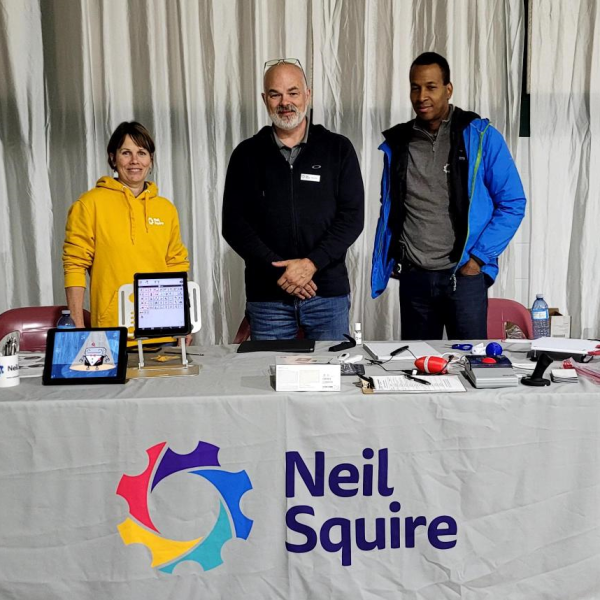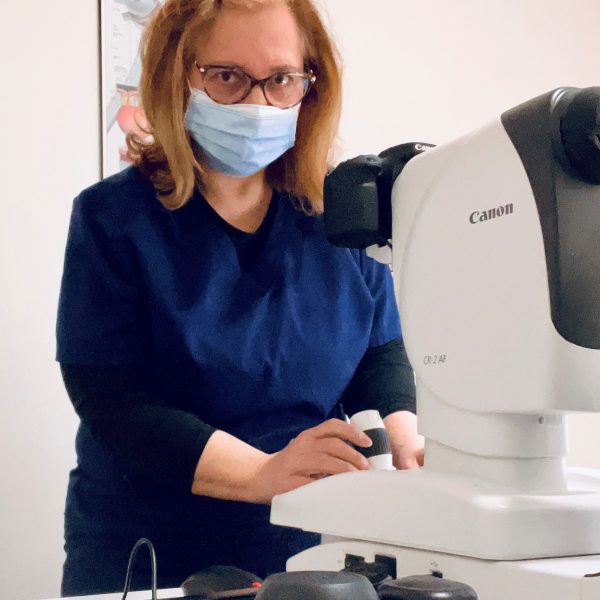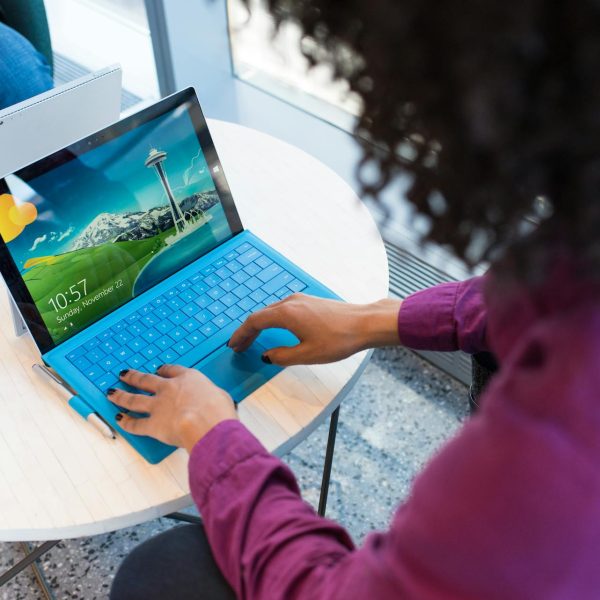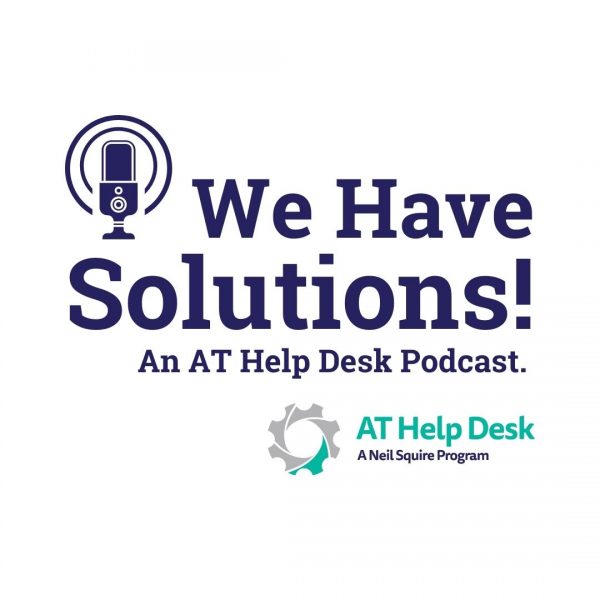Ten Years of AT Help Desk by the Numbers
This year, our AT Help Desk program celebrates 10 years of service in New Brunswick. Here’s a breakdown of the impact:
This year, our AT Help Desk program celebrates 10 years of service in New Brunswick. Here’s a breakdown of the impact:

Imagine that you have a technical problem or a computer question at work, you might call your company’s IT help desk. But what if you have a disability and you have a question about assistive technology? Maybe you need to find a device that will help you with your needs, or maybe your assistive technology isn’t working right and you need help. That’s where Neil Squire’s AT Help Desk comes in.
In 2024, the AT Help Desk celebrates 10 years of serving New Brunswickers with disabilities. Whether you’re working, studying, simply need an assistive technology that makes your life a little easier, or are calling on behalf of a client, student, or family member, anyone can reach out. And all services are available in English and French.

Tracy works as a diagnostic technician at an eye clinic in Salmon Arm. Every day in a fast-paced busy clinic, her job includes performing retinal scans, fundus photography, medical billing, and assisting patients with their ophthalmic concerns.
She has hearing loss, as well as pain in her feet from pes planus (flat feet) and a hallux rigidus (stiff big toe).
“[It] was impacting my everyday work life,” she shares. “I was experiencing foot pain while on my feet all day, also I was facing challenges of hearing patients correctly in such a busy working environment.”

Louise works part-time as a manager of an employment services provider, leading a team of 10 staff in in delivering services that support people in becoming employment ready and finding sustainable employment.
“Over the past few years, I have experienced loss of hearing to the point where it was impacting my ability to carry out my job effectively,” she says.

For persons with disabilities, learning apps are a great way to approach new concepts for a couple reasons. First, they allow you to learn at a pace that is more suited to your specific learning style. Secondly, these apps are not only able to take advantage of your devices built in accessibility features, but they also often offer their own suite of accessibility options.
We’ve covered a few different math courses in the past, but most of those apps were focused on students from K-12. Today, we are going to look at a Math and Science learning app that was specifically designed for post-secondary students and professionals.

Candace works as a recruiter for a regional health authority. Her job involves finding potential applicants online and at in-person events, as well as interviewing applicants.
“I love my job and plan to do it for as long as I can,” she says.
“I am bilaterally hearing impaired. This is a genetic condition that worsens over time and my hearing needs change. If I was not able to hear, I could not do any of my current tasks and would have to give up a job that I love. Not being able to have a meaningful conversation with everyone that I am in touch with would be detrimental to my work.”

On this episode, our AT Help Desk team talks about NFC-based automation for persons with disabilities, the Reading Progress and Reaching Coach tools that are now available for Teams, and finally we look at another AI chatbot that just might be our new favorite.

Rommel works in shipping and receiving for a hotel. He has hearing loss, which has made his job quite difficult.
“I could barely hear anything, and I couldn’t even lip read anymore due to people wearing masks. It was very challenging. I had to ask someone to intervene most times,” he shares.

By now most of us are aware of and have likely used Microsoft Teams. For those who aren’t familiar, Teams is a widely used communication platform that integrates all things Microsoft into a centralized space. Teams is also an incredible tool for teachers with a wide range of educational tools. But with the plethora of supporting apps that integrate into Teams, there’s going to be apps and add-ons that fly under the radar. Today we are going to talk about one of Teams’ supporting apps that you should definitely be aware of!

Caron is self-employed as a counsellor in Victoria, and her job requires her to listen closely to her clients.
“I have lost some of my hearing over the last few years,” she says. “I found that I was missing things that clients said to me. I was embarrassed to keep asking people to repeat themselves. I want to be the best counsellor I can be!”